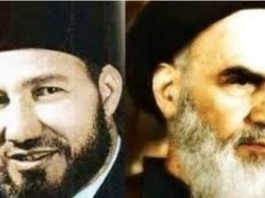Why is the “right war” taking a wrong turn?
Amir Taheri/Asharq Alawsat/October 11/15
Only a few months ago US Secretary of State John Kerry was trying to promote Afghanistan as a foreign policy success for the Obama administration. Barack Obama’s plan to complete US military withdrawal was near completion and there was even talk of establishing “dialogue” with the Taliban with Qatari mediation. Earlier this month, however, a mini-wave of panic hit the White House with news of Taliban capturing Kunduz, Afghanistan’s sixth largest city as the US-trained Afghan army fled without a fight. It was a humiliating defeat for the 7,000-man Kunduz garrison who left behind their shiny new American weapons for the 1,000-man Taliban force. The US-led NATO force still in Afghanistan had to scrape the bottom of the barrel to collect a few thousand men and a dozen or so warplanes to launch a counter attack in Kunduz, managing to regain control of parts of the city after a week of fighting.
However, the Taliban had made the points they had meant to make.They showed that, thanks to the Obama-led retreat, President Ashraf Ghani and his NATO allies are in no position to defend every bit of Afghan territory. To counterattack in Kunduz they had to withdraw forces in Mazar-i-Sharif and Badakhshan where the Taliban seized the opportunity to capture the governorate of Vardouj and 13 other strategic villages close to the border with Tajikistan. The Taliban are already strongly present in several provinces notably Farah, Nimruz, Helmand, Kandahar, Paktita and Uruzgan where the central government is present only in major cities. But even then, the Taliban make a point of entering the cities every now and then, even if only for a few days, to show the flag, terrorize the pro-government elements and do a bit of looting before leaving. Last summer they did just that in Musa Qala, on the Pakistani border, and Lashkar Gah, the provincial capital of Helmand. They also carried out a spectacular, though ultimately fruitless, attack on Achin, a major Afghan army base in Nangarhar. Another major looting operation was conducted in the northern district of Tirgaran, with Taliban looting stocks of food and modern US-supplied weapons.
So, why are the Taliban back on the offensive at this time? The attack on Kunduz may have been planned to coincide with the 90th anniversary of the creation of Afghanistan as an independent nation. The Taliban do not recognize nation-states; for them the Islamic ummah is a single reality, and it is faith, not nationality, which establishes a person’s identity. The founder and first leader of the Taliban Mullah Muhammad Omar designated himself as Amir Al-Mu’minin (Commander of the Faithful). His successor Mullah Muhammad Akhtar Mansour, who took over last spring, has not yet adopted that title. He calls himself Amir Al-Jihad (Commander of the Jihad), thus emphasizing the military rather than the political aspect of Taliban’s new bid for power. The second reason for heightened activism by the Taliban is the perceived weakness of the United States, a sentiment massively strengthened since President Obama made his “nuclear deal” with the mullahs of Tehran. One immediate casualty of that perception was the promised power-sharing talks between President Ghani and the Taliban with the US as “encourager-in-chief”. Last month, however, Mullah Mansour pulled the plug with a bland statement to the new Taliban leadership: “The Americans are leaving and are no longer relevant. Why share power when we can soon have all of it in Kabul?”
A third reason may be due to Mullah Mansour’s desire to establish himself as a strong leader.
News of Mullah Omar’s death had been kept a secret because Taliban leaders could not agree on a successor. Iran was promoting Muhammad, a son of Mullah Omar, as new leader while Pakistan was behind Mullah Mansour. The pro-Iran and pro-Pakistan Taliban even did a bit of fighting among themselves, mostly in the western province of Herat, until it became clear that Iran would not be able to seize control of a Sunni Muslim movement like the Taliban. Yet another reason may be the appearance of pro-Islamic State of Iraq and Syria (ISIS) groups trying to set up shop in competition with Taliban. According to the Iranian government over 80 such groups are already present in Afghanistan or in Pakistani areas close to the borders of Iran and Afghanistan. These are still small groups and unable to claim a slot in the big league of armed struggle. Some are cooperating with Taliban while others are helping Baluch rebels in Pakistan and Iran. However, ISIS-like groups could grow quickly, largely thanks to arrival of volunteers from all over the world and substantial financial support from rich individuals in Muslim countries.
By moving on the offensive now, Mullah Mansour may be signaling to his constituency that there is no need for ISIS type groups and that Islamic rule could return to Kabul
Through Taliban.
Finally, despite routine denials, there is no doubt that Pakistan also plays a part in reactivating the Taliban. With the US scripting itself out of the equation, Afghanistan could fall under the influence of an Iranian-Russo-Indian coalition, isolating Pakistan which, to a majority of Afghans who unlike Taliban are not ethnic Pashtuns, remains a hostile power. (Pashtuns are the largest community in Afghanistan, accounting for 38 to 40 per cent of the population.) Pakistan needs Afghanistan as hinterland providing strategic depth and a channel to Muslim Central Asia. No Pakistan government could allow Afghanistan to fall under control of a coalition of hostile powers.
President Obama has always labelled Afghanistan as “the right war” as opposed to the “wrong war” in Iraq. Even if we accept that weird dialectic, it would not be hard to see that he is imposing the “wrong peace” on the” right war.” His premature withdrawal from Afghanistan could revive the smoldering fires of a war that has ravaged that nation since 1979. A strong US presence has been a guarantor of peace and democratization in post-Taliban Afghanistan. However, the task of building a new and better Afghanistan is not yet achieved. To withdraw now would be seen as a desperate cut-and-run ploy, another example of Obama snatching defeat from the jaws of victory. Ironically, Obama has now more troops in Iraq, the land of the “wrong war” than in Afghanistan with its “right war.” The Taliban are already preparing attacks on Baghlan, Samangan and Mazar-i-Sharif. Their aim is to transform the country into another base for exporting terrorism to Central Asia and China to start with and, sooner rather than later, to the rest of the world.





